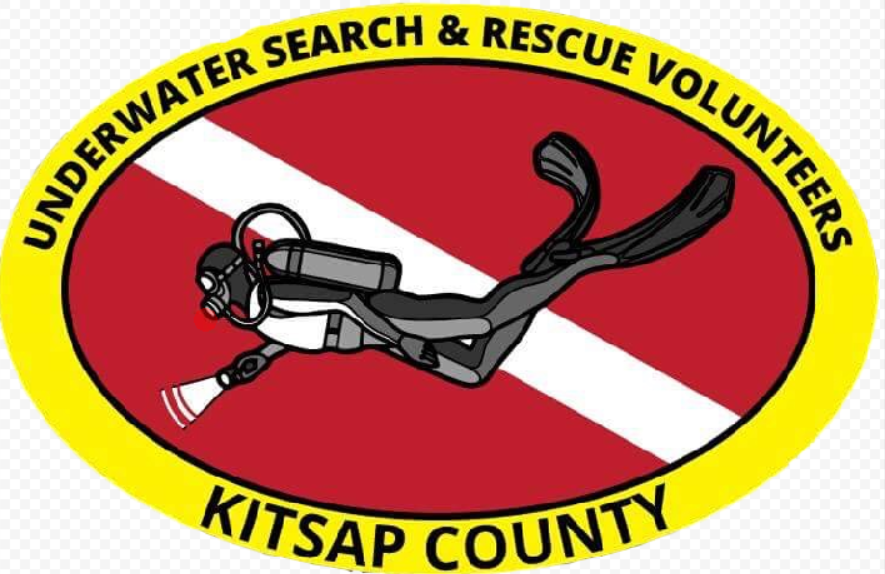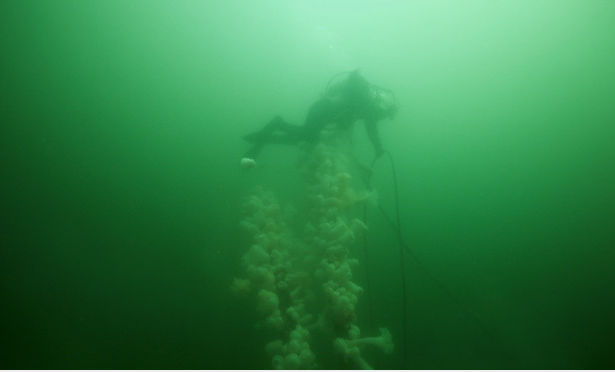While Seattle was focused on kayaktivists attempting to blockade Shell’s oil drill rig on Monday, an entirely different operation was taking place under the water’s surface.
A cleanup crew with divers spent the morning picking up pieces of anchor and cable left from the initial Shell protests in May. The cement anchor blocks and steel cables were left behind from the Solar Pioneer protest barge. Divers say they damaged a dive park and a protected habitat.
The job cost approximately $10,000, according to Koos du Preez with the Seattle branch of Global Underwater Explorers, a nonprofit aquatic conservation group.
Activists on the barge dropped massive cement blocks into the water to act as anchors — du Preez estimated that they weigh around 2,000-4,000 pounds each.
“The Solar Pioneer barge dropped a couple of big mooring blocks right in the middle of a dive park,” du Preez said. “They had mooring cables attached to the barge; there were big tidal swings and with those tidal swings they wrapped around structures frequently visited by divers and also house marine life.”
The Department of Natural Resources reviewed the incident and wanted all the cement blocks and cables removed from Seacrest Park.
“The operation was very costly and the activist group, I suspect, did not have that much resources to clean up the dive park,” du Preez said. “We worked with them and said we would take care of the operation to make sure it was done professionally.”
But the cost and materials needed posed a challenge.
That’s when GUE got help from an unlikely source: Shell, the company activists were protesting when they used the barge.
“One of our members took a long shot and dropped an email directly to the CEO, Ben van Beurden, at Shell,” du Preez said. “We didn’t think much of it at the time, but low and behold, we get a call from Shell in Alaska. Our email somehow bounced around in the upper echelon of Shell.”
“The next thing you know, someone calls us from Alaska and said,’We’d love to help out,'” he said.
Shell offered to help foot the bill for the cleanup and made some introductions to Foss Maritime, the Seattle company that hosted the oil giant. Foss offered to help with the bill as well, and provided vessels to assist. Barge owner John Sellers, who leased the barge to protesters, also stepped in to help.
Along with Global Diving and Salvage, the crews untangled the underwater cables and removed the debris as kayaktivists paddled in the background.
“Obviously, if Shell wasn’t in the area, the activists wouldn’t be in the area, and none of this would have happened,” du Preez said. “I, and our group, consider this whole incident as collateral damage, as the net result of all this activity.”
du Preez noted that nobody is blaming Shell for the damage done to the dive park, and that GUE is thankful for their help.
“The nature of Shell’s business attracts this kind of activist behavior and Shell recognizes that, and has social responsibility programs in place to deal with this kind of thing,” he said.
du Preez said his team still has some work to do at the dive park.
“We haven’t done rehabilitation or rebuilding and that needs to come in the future,” he said.

